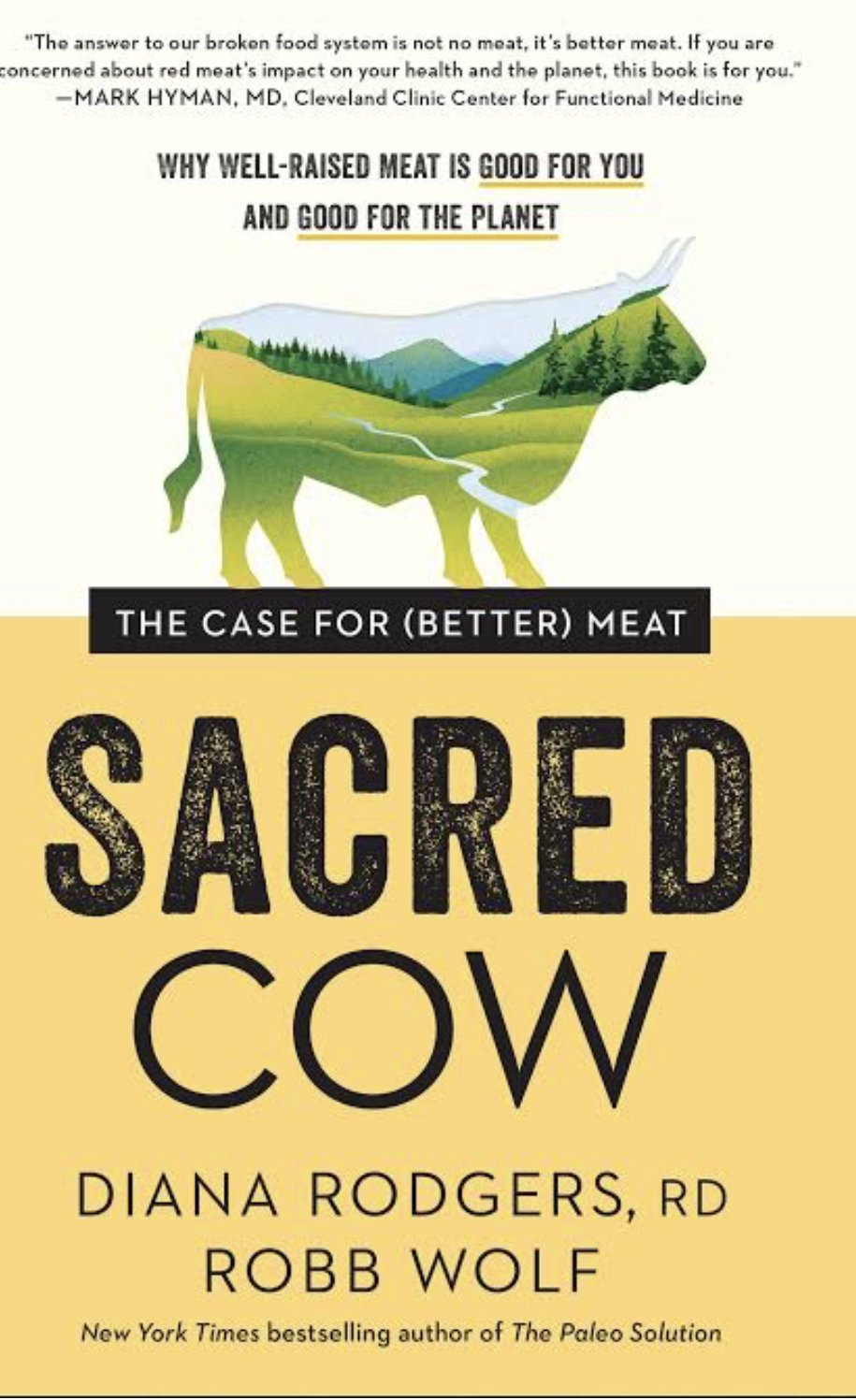Book review: Sacred Cow
If you are looking for a one-stop resource to give to someone trying to understand the mayhem around meat, or you want to better equip yourself to understand and defend why meat eating isn’t just good, but vital for both environmental and human health, Sacred Cow is an excellent choice.
We’ve demonised fat, then carbs; it’s logical (but doesn’t make much sense!) that meat comes next, right?! Meat is under attack around the world, and it’s farming! And it’s not just bad meat - government-subsidized, CAFO-raised, corn-stuffed, antibiotic- and chemical-laden mega meat—that the anti-meat faction is after. It is meat, period. Sacred Cow, which tackles assorted arguments against meat, is a vital resource to help slow the spread of this agenda.
Sacred Cow looks at all the meat agenda calls - from its nutritional facets as a heart disease and carcinogenic main contributor, from total meat avoidance and limiting meat consumption where the authors report that “The mid-Victorians saw a loss of half a foot in average height in approximately one generation” (page 67). In short, history and nutritional research don’t actually support the idea that meat is bad for human health.
Next the authors tackle the ’eating meat is bad for the environment’ claim, using the “how much water does it take to produce a pound of beef?” type argument. Unless someone has created cows that can turn water into other unknown substances, all the water used to raise a cow merely becomes enriched fertilizer when it leaves the animal! As Sacred Cow makes clear, the environmental arguments against beef are indeed distorted or fraudulent.
In Sacred Cow, Wolf and Rodgers go through all the major objections that the anti-meat contingent have amassed, but without unnecessary detours. What is heartbreaking, the authors argue, is that all sides of the debate ought to be able to come together and go after the real problems—industrial meat and industrial meat production, along with a broken agricultural system that prizes corn, soy and similar crops above all others to provide unnatural foodstuffs to confined animals.
Back in the 1920s Dr. Weston A. Price realised that animal foods are crucial to human health. In his studies of nonindustrialized peoples, Dr. Price tried to find a healthy population living entirely on plant foods; he found none. Rather, traditional peoples made sure they had animal foods in their diet, even if the inclusion of animal foods required considerable effort and risk; and all the sacred foods (for having healthy babies) were animal foods. Humans are omnivores and meat - a traditional, nutrient-dense food group if ever there was one—has been an essential part of our health for centuries. We need to work together to ensure our ongoing health and our environment, as one.
